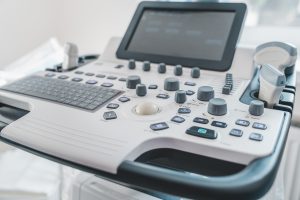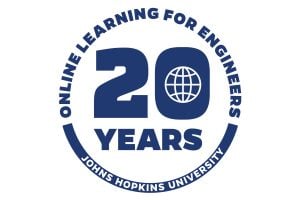
A Lifelong Learner Teaching Generations of Engineers
Matthew “Matt” Montoya, PhD, is a long-time faculty member of Engineering for Professionals, and he was the principal chief engineer and portfolio director for the Johns Hopkins University Applied Physics Laboratory where he was responsible for strategic and technical direction for several/multi-million-dollar complex systems pertaining to national security and healthcare delivery.
How long have you been a faculty member with EP and which program(s) are you affiliated with?
I have been with the Johns Hopkins Engineering for Professionals Systems Engineering program for nearly 20 years, and I also helped design and start the Healthcare Systems Engineering program which was launched in 2018.
What has inspired you to continue your role with EP for such a long time?
I like to introduce students to new concepts to help them expand their skills and professional impact. I prefer teaching introductory or specialized courses because the “ah-ha” moments from students are priceless.
Tell us about one specific course that you teach that has changed significantly over the years and why?
It’s not one specific course, but we are always looking to evolve the Systems Engineering material to fit current and future challenges. We have added different system process models and tools, as well as added different scales, scopes, and modes of systems over the years to make sure all our materials help students become change agents in their organization.
What is your favorite course to teach?
The Introduction to Systems Engineering. When students enter this course, they are usually specialists and don’t have a very broad background or experience with engineering large-scale systems. This course provides those “ah-ha” moments as students learn the larger context, processes, and tools for building real systems that have a big impact. I am often told by my students how they can immediately apply what they’ve learned from this course to their jobs. This is priceless!
What are you most passionate about as an educator?
Be fearless and always pursue learning. I have 6 college degrees myself: Doctorate, MBA, MPH, 2XMasters, and Bachelors – I got my last degree when I was 60 years old. I have always led by learning foundational material in an academic setting, which helped me in my professional setting. I found being around knowledge, learning, and academics promotes hope, health, and courage. I want our students to experience this life change and growth.
What inspired you to become an engineer?
As a child in the 1960s, the world was filled with chaos – riots, assassinations, culture wars, and global nuclear fears. I found the only truly uniting area was engineering, specifically the Apollo Program. I was captivated by the Apollo Program’s teamwork, hope, fearlessness, courage, and joy as America put a man on the moon, against all odds. I knew I wanted to pursue that type of knowledge, fearlessness, and hope, and engineering was a means to achieve that.
Describe your role and job responsibilities.
For 35 years I was a technical and program leader at the Applied Physics Laboratory (APL) of JHU. I led hundreds of APL staff members and worked on some of the most technically and contextually complex system challenges on the planet. From missile defense against hypersonics to homeland security and infrastructure resilience, and to health, healthcare, and biosecurity, I was always drawn to impact and change, and JHU provided me the environment to realize my vision.
